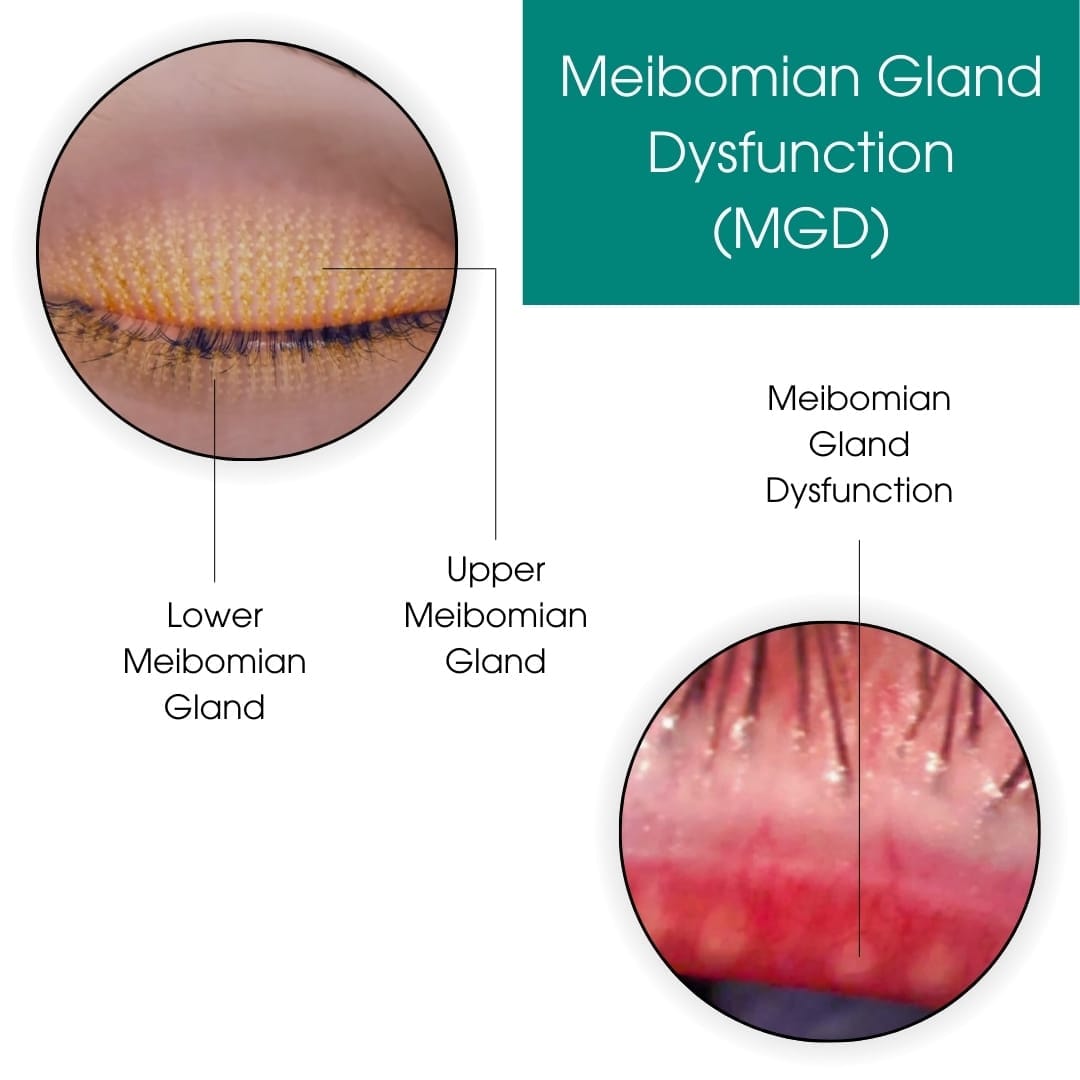Meibomian gland dysfunction, also referred to as MGD, is a common eye condition that affects the quality and quantity of the oil produced by the meibomian glands. These glands are located along the edges of the eyelids and secrete oil that prevents the evaporation of tears and keep the eyes moist and comfortable.
When the meibomian glands become blocked, inflamed or infected, they can cause dry eye symptoms, such as irritation, burning, redness, blurred vision and Headaches and sensitivity to light. MGD also increases the risk of developing evaporative dry eye, eye infections and damage to the cornea, which is the clear front surface of the eye.
Eye Physicians is the leading medical practice for MGD treatment in Downtown Manhattan. They have a team of experienced optometrists who diagnose and provide meibomian gland treatment using the latest technology and techniques. Whether you need medication or advanced procedures such as LipiFlow, Physicians can help you find the right solution for your MGD.

MGD has different risk factors. Age is one of them. As you get older, the meibomian glands tend to produce less oil and become more prone to blockage and inflammation. This can lead to reduced tear film stability and increased dry eye symptoms.
Hormonal changes also increase vulnerability to MGD. Hormones, especially androgens, play an important role in regulating the secretion and composition of meibum. Hormonal imbalances, such as menopause, pregnancy and the use of oral contraceptives, can affect the function of the meibomian glands and create a need for meibomian gland dysfunction treatment. Other common causes of MGD include:
Dryness is the most common sign of MGD. Your eyes may feel dry, scratchy and uncomfortable, especially in dry or windy environments. You may also have difficulty wearing contact lenses or using digital devices for long periods of time.
Your eyes may burn, sting or itch, as if there’s something in them. You may also experience redness, swelling or inflammation of the eyelids or the eye surface. Other symptoms include:
At Eye Physicians, in New York City, your eye doctor may prescribe oral or topical antibiotics, such as doxycycline, azithromycin or erythromycin, to reduce inflammation and clear up any infection of the meibomian glands. They may also prescribe topical steroids, such as loteprednol or dexamethasone, to reduce swelling and redness of the eyelids.
You could also have surgical procedures for severe MGD, which are more advanced and effective treatments. New treatment for meibomian gland dysfunction includes:
There can be serious and long-term effects on your eye health and vision if you don’t access meibomian gland dysfunction treatment. And while MGD is the most common cause of dry eye syndrome, dry eye syndrome can cause chronic discomfort, reduced visual quality and increased sensitivity to environmental factors. The long-term consequences may include:
MGD can cause corneal erosion, ulceration, thinning, or perforation, which can lead to vision loss or blindness. MGD increases the risk of bacterial or fungal infections of the eye and eyelid with infections like conjunctivitis, keratitis and blepharitis. MGD can also affect your emotional and psychological well-being, causing frustration, anxiety or depression.
Choose Eye Physicians for new treatment for meibomian gland dysfunction in Downtown Manhattan. The team finds the best solution for your MGD using the latest diagnosis and treatment options. They offer a range of treatment options to improve your eye health and comfort. Don’t let MGD disrupt your life. Contact Eye Physicians today to book your appointment.
Eye Physicians
110 Lafayette St, Suite 503
New York, NY 10013
(212) 292-4814
Entrust the care of your precious eyesight to highly skilled and experienced eye care professionals. For top-notch ophthalmologists and optometrists in Downtown Manhattan, choose Eye Physicians. Eye Physicians ensures prompt care, precise diagnosis, and personalized treatment plans.
Schedule an Appointment